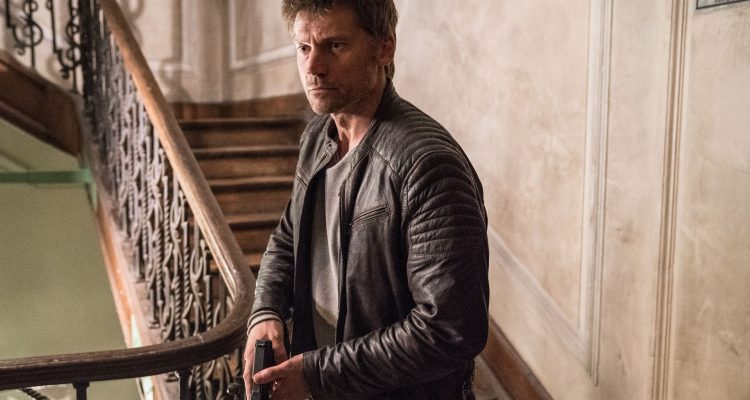“I had a lot of problems in financing [the film]. I never experienced such a horrible movie set. A large part of our team has not even been paid yet by the Danish producers. The film is finished and ready to go out, but I have no idea what its future will hold, it is currently in the hands of the producers. This was my first experience in Denmark and most likely my last.” These are the words of director Brian De Palma, nearly a full year before this week’s release of “Domino.” There are few directors that cinephiles are aching to return to form more than Brian De Palma, but unfortunately, his string of misfires continues with this picture. However, there are enough glimmers of his electrifying, trademark style that there’s hope De Palma may have another great movie left in him yet.
READ MORE: the 100 Most Anticipated Films Of 2019
The rather workmanlike script by Petter Skavlan (“Kon-Tiki,” “The 12th Man”) follows Christian (Nikolaj Coster-Waldau), a cop who embarks on a mission to capture the man who killed his partner Lars (played by “Borgen” and “The Killing” star Soren Malling, who is thoroughly wasted here) during an arrest gone wrong. Along for the ride is Alex (Carice van Houten), a fellow officer, who has her own personal attachment to the case and reasons for vengeance. The twist: the murderer is a person of interest to the CIA, embodied by the wildly Southern-accented Guy Pearce, who is having the most fun out of anyone in the cast. The killer becomes a pawn in a cat-and-mouse game where the interests of local and global politics are at odds. While that’s certainly a compelling idea, neither Skavlan or De Palma seems particularly invested in exploring its timely relevance, a fact the director himself leans into.
READ MORE: Summer Movie Preview: 35 Films You Shouldn’t Miss
“….the whole political aspect will be very little exploited, the film was more for me a new opportunity to explore a visual narrative,” De Palma explained last year. “In the film, terrorists are obsessed with the idea that their actions are instantly visible live on the Internet or on TV.”
READ MORE: The 25 Best Films Of 2019 We’ve Already Seen
To that the end, “Domino” — which for no particular reason is set in 2020 — is a much more grounded picture than fans of De Palma might be used to. The film’s backdrop of viral terrorism does see De Palma applying his trademark split-screen technique to a mass shooting sequence that’s streamed live online. Aside from that, the director doesn’t break any new narrative or visual ground. However, it’s a moment that’s grimly clever and could have been impactful, had De Palma been given the resources to pull it off more effectively.
READ MORE: 2019 Cannes Film Festival: The 21 Most Anticipated Movies
Watching “Domino” is an exercise in seeing De Palma working with a budget that seems to have been evaporating during production. From shoddy studio sets to chintzy digital effects, the filmmaker fights a losing battle against low production values that undermine him every step of the way. The film feels defeated before it even really gets rolling, and it’s a shame, because there are flashes of De Palma trying to make his mark in a situation he simply couldn’t win. “Domino” is peppered with De Palma’s familiar flourishes: wide shot-to-slow zoom close-ups; split diopter shots; the aforementioned split screen; and an elaborately staged (if somewhat goofy), ticking clock climatic final sequence, that bounces effectively between two locations. These are suggestions of a much better film, had the director been had half the chance. However, De Palma isn’t completely absolved from responsibility for the film’s shortcomings.
Filmmakers have made better from far worse circumstances, and outside of the film’s setpieces, De Palma doesn’t seem to have given a damn. The director inspires some astonishingly wooden acting from Coster-Waldau and van Houten, who seem at a loss about the motivations of their characters. And while Pearce leans into his smarmy CIA executive with absolute, wildly entertaining glee, he manages to survive “Domino” mostly because he decided to act in an entirely different movie than everyone else. Tonally, the film is off balance too. De Palma enlists his frequent collaborator Pino Donaggio for the score, but the composer is simply the wrong the choice. Donaggio’s lush orchestration — which at its best in De Palma’s films, builds operatic tension that releases into ecstatic climaxes — is entirely at odds with the dour story that attempts to reflect contemporary, geopolitical realities.
De Palma tries to have it both ways with “Domino.” He tackles a movie that’s clearly inspired by the current climate of terrorist extremism, but attempts to deflect any criticism on that front by saying that he’s not making any kind of statement about the subject matter at all. The film’s half-hearted politics — which do make a statement, regardless of intent — are perhaps less egregious than a movie that’s simply going through the motions for the bulk of its running time. Certainly, De Palma deserved a better hand than what he was dealt, but audiences also deserve at least modicum of effort from the filmmaker, even if he’s working in the most trying of circumstances. [D]

